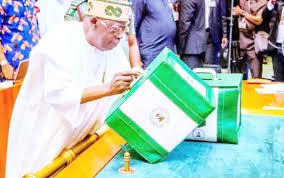In June 2025, Nigeria’s National Assembly approved another extension of the capital portion of the 2024 national budget, moving its implementation deadline to December 31, 2025. This marks the second time the budget has been rolled over—first from December 2024 to June 2025, and now to the end of the year. While the decision is backed by provisions in the Appropriation Act and Finance Act, it has sparked renewed debate on Nigeria’s budget credibility, execution discipline, and transparency in public finance.
The lawmakers explained that the extension would give ministries, departments, and agencies (MDAs) more time to complete capital projects and avoid waste due to abandonment. However, critics argue that the repeated rollovers reflect deep-rooted issues, including poor procurement planning, slow disbursement, cash flow problems, and general inefficiency in Nigeria’s budget system.
The Budget Office of the Federation has defended the move, saying Nigeria’s current situation mirrors global practices in countries like India, Kenya, and Indonesia. According to the Director-General, Nigeria is managing three budget instruments at the same time: the 2024 Main Appropriation Act, a supplementary budget, and the 2025 Appropriation Act. Though this approach may appear chaotic, the Budget Office sees it as a necessary step in aligning planning timelines with real-world implementation challenges.
Still, some senators have raised concerns. Senator Abdul Ningi and Senator Seriake Dickson questioned whether the budget extension was triggered by actual revenue challenges or just a cover for governance lapses and political distractions. According to them, Nigeria needs to pay closer attention to how the budgeting process is run to avoid unnecessary overlaps that may affect planning, spending, and delivery of services.
The 2024 national budget, titled the “Renewed Hope” budget, was first submitted by President Bola Ahmed Tinubu on November 9, 2023, with a total estimate of ₦27.5 trillion. The National Assembly later increased it to ₦28.78 trillion before it was signed into law on January 1, 2024. By June 2024, President Tinubu requested a supplementary budget of ₦6.2 trillion, pushing the total for 2024 to ₦35.5 trillion.
Breakdown of the budget shows that ₦13.2 trillion (34.75%) was allocated for capital expenditure, ₦11.7 trillion (30.47%) for recurrent expenses, and ₦8.79 trillion for debt servicing and sinking fund. The rest—₦1.74 trillion—was set aside for statutory transfers.
Despite the large figures, implementation has not kept up with expectations. The budget overlap has reportedly created complications for MDAs who now have to navigate between old and new budget frameworks. This has delayed payments, complicated audit trails, and made it harder to track the effectiveness of public spending.
Historically, Nigeria spends less on public investment compared to global averages. Between 2015 and 2024, government spending averaged just 13.1% of GDP, far below the global average of 30% and Sub-Saharan Africa’s 21.2%. Experts say the country needs more public investment in infrastructure, human capital, and economic diversification. However, extending capital budgets without improving execution capacity may not solve the real problems.
Economically, the extension has both positive and negative sides. On one hand, it allows government to continue infrastructure projects without seeking fresh legislative approval. This helps ensure stability in key sectors like roads, rail, and power. But on the downside, capital budget performance in Nigeria has often fallen below 70%. The repeated extensions may simply cover up inefficiencies and poor planning.
The economic risks are real. With inflation still above 20% as of May 2025, injecting more funds into the economy through delayed capital spending could worsen price instability. Also, over 65% of government revenue is already spent on debt servicing, and rolling over spending obligations could add more pressure to public finances.
Investors and private sector players are also watching closely. Fiscal unpredictability affects investment decisions. Many fear that without strong checks and accountability, the extensions may lead to duplicated projects, inflated contracts, and poor oversight. Civil society organisations and experts have called for stronger scrutiny from the National Assembly and audit agencies like the Office of the Auditor-General to ensure transparency and prevent wastage.
Governance and transparency remain at the heart of the issue. Budget extensions often come with weak oversight, delays in project completion, and lack of justification for unspent funds. Roads, power, and other sectors with big contracts are particularly vulnerable. Critics argue that until strong monitoring and performance tracking are in place, such extensions may do more harm than good.
Dr. Chinyere Almona of the Lagos Chamber of Commerce and Industry (LCCI) said the serial budget rollovers are damaging public trust. She warned that despite the capital budget allocations, the funds are effectively unfunded once debt and recurrent costs are taken out. Muda Yusuf, Chief Executive of the Centre for the Promotion of Private Enterprise (CPPE), added that unrealistic revenue projections and overly ambitious budgets are to blame.
Tunde Abidoye of FBNQuest believes administrative delays are a key issue. He advised the government to fully enforce the Medium-Term Expenditure Framework (MTEF) and adopt performance-based budgeting. This would ensure only executable projects are prioritised and properly funded. The LCCI also recommended that new borrowing be tied to named projects to ensure accountability.
The repeated extension of the 2024 capital budget may be legal, but it sends a worrying signal. Without urgent reforms in budget planning, execution, and monitoring, Nigeria risks losing the benefits of public investment. More than roads and buildings, what citizens demand is effective use of public resources, timely project delivery, and an accountable budgeting system.
